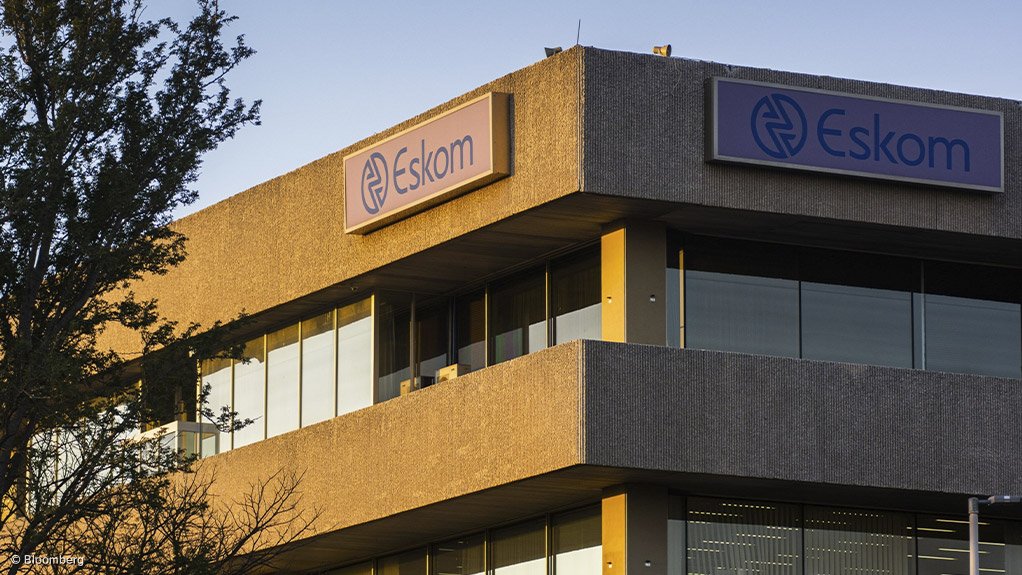South Africa’s Eskom is not very good at keeping the lights on, but it’s providing excellent profits for bondholders.
Eskom’s dollar bonds due 2028 — which don’t have an explicit government guarantee — have handed investors a total return of 10% this year, more than three times that of the emerging-market benchmark. Securities due in 2025 and 2027 are also among the best performers in the 2 100-member Bloomberg Emerging Markets Hard Currency Aggregate Index.
Bondholders are confident the National Treasury will make good any debts Eskom can’t pay — even those it doesn’t backstop — meaning the bonds offer a yield pickup over the sovereign, without additional risk. They’re also betting South Africa will pay a premium when it takes over as much as two-thirds of Eskom’s debt later this year, a deal that may be announced in the annual budget on February 22.
“We would encourage investors to add ahead of the February budget announcement in which the government will provide details on Eskom debt assumption,” said Zafar Nazim, a credit analyst at JPMorgan Chase Bank, in a note to clients. The company added Eskom bonds at the end of last year, according to filings data compiled by Bloomberg.
“Eskom should now be considered an extension of the sovereign, and bonds should trade as such,” Nazim said.
EM Frenzy
Most emerging-market debt is having a banner start to the year amid bets the Federal Reserve will slow or halt interest-rate increases and China’s reopening will mitigate a global growth slowdown. But still Eskom’s notes have outperformed.
Yields on Eskom dollar securities due 2028 have dropped 220 basis points since the start of the year to 9.30% as of Wednesday. That’s a premium of more than 300 basis points over similar-maturity South African government dollar notes. Yields on 2025 securities have plummeted 297 basis points to 9.21%, offering a spread of nearly 400 basis points.
About 80% of Eskom’s bonds come with an explicit government guarantee, and President Cyril Ramaphosa has said the company is “too big to fail” — implying that the state would back the company if it ran into any troubles. The state is now considering a takeover of some of its $22.8-billion in liabilities as it seeks to restructure the utility and restore financial sustainability.
‘Red Flags’
Some investors are steering clear. Eskom’s challenges are not just financial, and the hurdles to overcoming them are steep, said Manuel Mondia, a Zurich-based analyst at Aquila Asset Management.
The power company’s troubles have led to 13 consecutive months of rolling power cuts, leaving South Africans without electricity for as much as eight hours a day, according to Bloomberg calculations. The cash-strapped utility already relies on government support to run its operations and service its debt.
Goldman Sachs Group Inc. has described the company as the biggest threat to Africa’s most industrialized economy. The South African Reserve Bank cut its forecast for economic growth this year to 0.3%, from 1.1% previously, citing the energy crisis, with Governor Lesetja Kganyago saying the blackouts will cut an estimated 2 percentage points off output this year.
Transferring Eskom’s debt to the state would require modifications to bond agreements, a complex and uncertain process needing approval from holders of the securities, said Mondia. And repeated cash injections have done little to ease operational and organizational problems, with Chief Executive Officer Andre de Ruyter announcing his resignation in December amid allegations that he’d been poisoned.
“We got rid of our exposure as the yield attached to the issuer was relatively low when you think of the amount of issues they need to face, independently of the government support,” Mondia said. “The news flow including failures at plants and accusations of attempted murder definitely raised some red flags which pushed us out of the position.”
But Nazim at JPMorgan said such concerns don’t preclude an extended rally, with a call for non-guaranteed 2028 bonds to trade no more than 150 basis points wide of the sovereign.
“Creditors should not get too hung up on record rolling blackouts and the resignation of the company’s well-respected CEO,” Nazim said. “Creditors’ fortunes and the company’s credit profile are largely tied to tariff decisions and the government’s financial support. We believe that both factors are moving firmly in the right direction.”
EMAIL THIS ARTICLE SAVE THIS ARTICLE
To subscribe email subscriptions@creamermedia.co.za or click here
To advertise email advertising@creamermedia.co.za or click here











